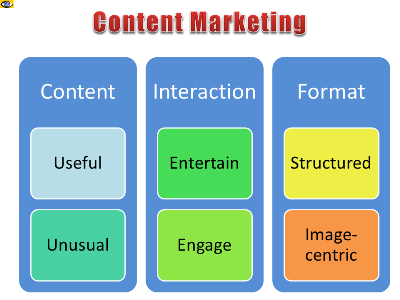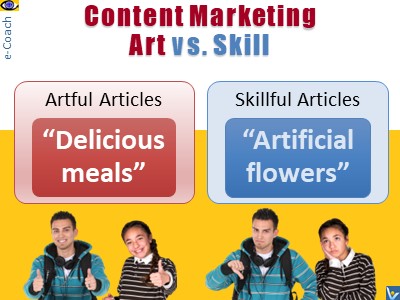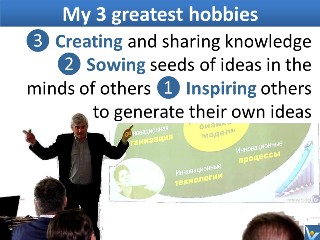 |
|
Content marketing is focused not on
selling, but on communicating with visitors, users, prospects and
customers, connecting with people virtually, building trust and
brand equity.
|
|
| |
Content marketing is to inspire business and
loyalty from followers, visitors and buyers by delivering consistent, ongoing
valuable content.
You can deliver valuable content through
your own
website,
social media and other sites
|
|
|
 |
|
If you treat content marketing as an
art, then readers
will savor your articles like delicious meals.
If you treat content marketing as a
skill, then your articles will smell like artificial flowers. |
|
| |
More
solo interpreneurs and businesses are
achieving success publishing their original valuable
content rather than embedding advertisements within
someone else's content. Additional benefits of content
marketing include growth of brand power, trust,
reputation, and audience. It helps businesses
build a positive reputation within their industry.
|
|
 |
|
|
|
The top B2B and B2C
content marketing strategies are
social media, articles on a businessís website,
stories, eNewsletters,
case studies, videos and articles on other websites.
Content marketing involves creating and posting free
valuable content on various web sites online, while
increasing exposure and awareness for your business, creating gratitude, building trust, and,
ultimately,
winning customers.
|
|
| |
User experience and
customer value can be delivered in a variety of
formats, including e-newsletters, white papers, stories, e-books, infographics,
emfographics,
success stories,
case studies, how-to guides,
tips, question
and answer articles, etc. Examples of content marketing include submitting news,
articles, blog posts, photos, videos, or podcasts to
various types of online sites,
social networks,
and publication channels.
|
|
|
|
|
|
|